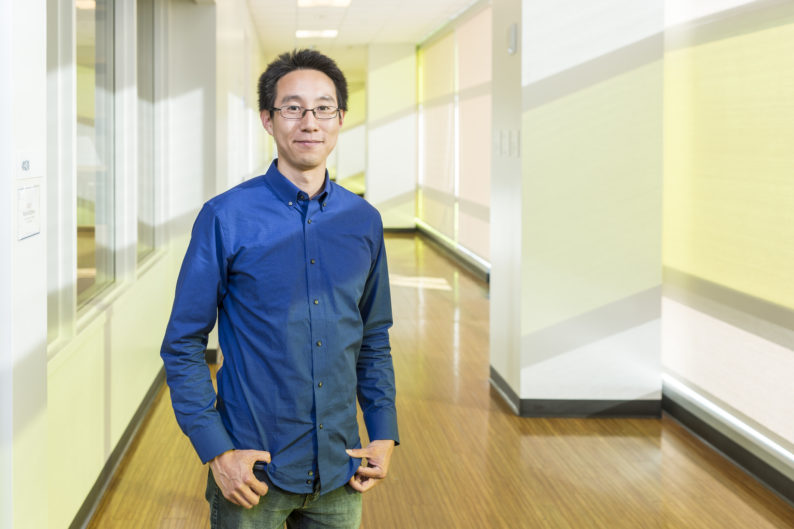—This article was adapted from a news release by UC Davis
Patrick Shih, the Joint BioEnergy Institute’s (JBEI) Director of Plant Biosystems Design in the Feedstocks Division, has been awarded a 2020 Packard Fellowship in Science and Engineering by the David and Lucille Packard Foundation. Shih is an assistant professor in the Department of Plant Biology, College of Biological Sciences at UC Davis, one of JBEI’s six academic research partners.
“I am thrilled to hear that Patrick won this prestigious award,” remarked Jay Keasling, JBEI’s Chief Executive Officer. “We are very fortunate to have someone of Patrick’s caliber as one of our scientific leaders at JBEI.”
The fellowship will provide $875,000 over five years to support Shih’s work on the enzyme ribulose-1,5-bisphosphate carboxylase/oxygenase, or rubisco. The most abundant enzyme on the planet, rubisco is involved in “fixing” carbon from atmospheric carbon dioxide so it can be turned into sugars by photosynthesis. It’s found in some form in nearly all green living things on the planet, and its history goes back billions of years to the origins of photosynthesis.
Shih has studied the evolution of rubisco and how it is tied to changes in Earth’s environment. Almost all the fixed carbon on Earth is there because at some point, rubisco grabbed it out of the atmosphere, he said.
“If we can understand how it evolved, perhaps we can find ways to better engineer it,” Shih said.
Life on Earth today represents only a tiny fraction of all the living things that have ever existed. By looking at rubisco in a wide range of modern organisms, Shih’s lab can work backwards to ancient, ancestral forms of the enzyme and study their kinetics.
“It’s like Jurassic Park in a test tube,” he said.
And there are still surprises out there: In August this year, Shih and colleagues at Berkeley Lab and UC Berkeley identified a new variant of rubisco in unknown microorganisms from wastewater and subsurface environments.
“All plant biomass is derived from CO2 fixed by rubisco,” says Shih, explaining how this discovery relates to JBEI’s mission of converting crops into renewable biofuels and chemicals currently derived from petroleum. “Understanding how this important enzyme evolved may shed light on how we could engineer it to improve the overall productivity of bioenergy feedstock crops.”
Shih is among 20 Packard Fellows announced this year. The program was created in 1988 to support “blue-sky thinking” by scientists and engineers with the belief that over time this research would lead to new discoveries that improve people’s lives and enhance our understanding of the universe.
